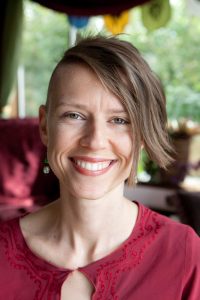Self-confidence (confidence in what you are and are not) requires hard-won wisdom. Not knowledge.
Knowledge is great, but only certain parts of us hold parts of our knowledge, e.g. the parts of you that were able to sit up in class and pay attention know alcohol makes humans stupid. Other parts, like the ones that tell you that you’ll only impress a girl by drinking in some “liquid courage,” got that knowledge elsewhere. Those parts didn’t attend that lecture. Or disagreed with it, and didn’t get a chance to sort out the contradictions.
You’re keen to learn, but different parts of us learn different things at different times for a reason. Ultimately, we consolidate all this knowledge by relearning it the hard way. Unless there’s a better way. Like talking.
When a pattern or an issue in my life is stuck on repeat, it’s likely that different brain circuits have found a confusing contradiction and refuse to move on ’til it’s resolved.
The choice is mine: the hard way (with no guarantee of resolution!) or the better way.
Knowledge vs Wisdom
Knowledge can be second-hand. Wisdom is harder to come by, because it’s very particular to your own situation, culture, and life. Nobody else’s wisdom applies to you. That’s just knowledge — their knowledge — that you have yet to test and turn into your own knowledge… at which point it’s wisdom.
If you have the sense wisdom is not real, it’s great to rely on knowledge. Facts. Data. …Until that doesn’t work anymore.
Let’s say wisdom is knowledge that’s been tested.
And for argument’s sake, let’s say it’s worth it because knowledge alone no longer satisfies your goals.
Knowledge is distracting.
Testing the reliability of any bit of knowledge before you can relax and trust it in the real world, makes sense, and so it’s worth a little bit of bandwidth. Just a little. Fine, right?
How often do you talk to people about your conclusions? Or keep a lab-book of your life? Or really even draw preliminary conclusions — overarching hypotheses you’re willing to design experiments to test?
If you don’t talk much, odds are pretty high you’ve got a lot more teeny tiny experiments running in tandem than people who do talk. Sure, you don’t want to talk about anything when the results are still out… but even preliminary results are not gonna get articulated, consolidated, and tested thoroughly enough to say you know yourself, if you never comb through your findings so far in a wisdom-seeking, enthusiastic way.
Knowledge into wisdom
I see knowledge as ‘unconsolidated wisdom,’ and I see it as costing me at least one point off of my IQ in this moment, for each factor I’m still unable to rely on. A little bit of bandwidth for each conclusion you haven’t drawn yet. A little more for each bit of info you’re still testing. Fine if your IQ is plenty high… but it’s not infinitely high.
‘Hedging’ too many simultaneous ‘bets’ is stressful, and kinda cancels out any possible winnings. Learning too much stuff at once is distracting and, ironically… distraction guarantees I’ll make silly mistakes.
Once you’ve consolidated a few of these contradictions, solved this type of mental puzzle a few times, you get the hang of tapping your OWN guidance, your own knowing-what-you-don’t-know… and you get experience-based confidence on how to grow wiser. Sooner or later. 🙂
Knowledge is great.
But wisdom-winning… is how you become able to “just be yourself” without over-thinking it. The most stressful thinking has been done. Taken care of. You’ve consolidated your knowledge and made room for true eagerness and curiosity and willingness to exist. You’re you.

